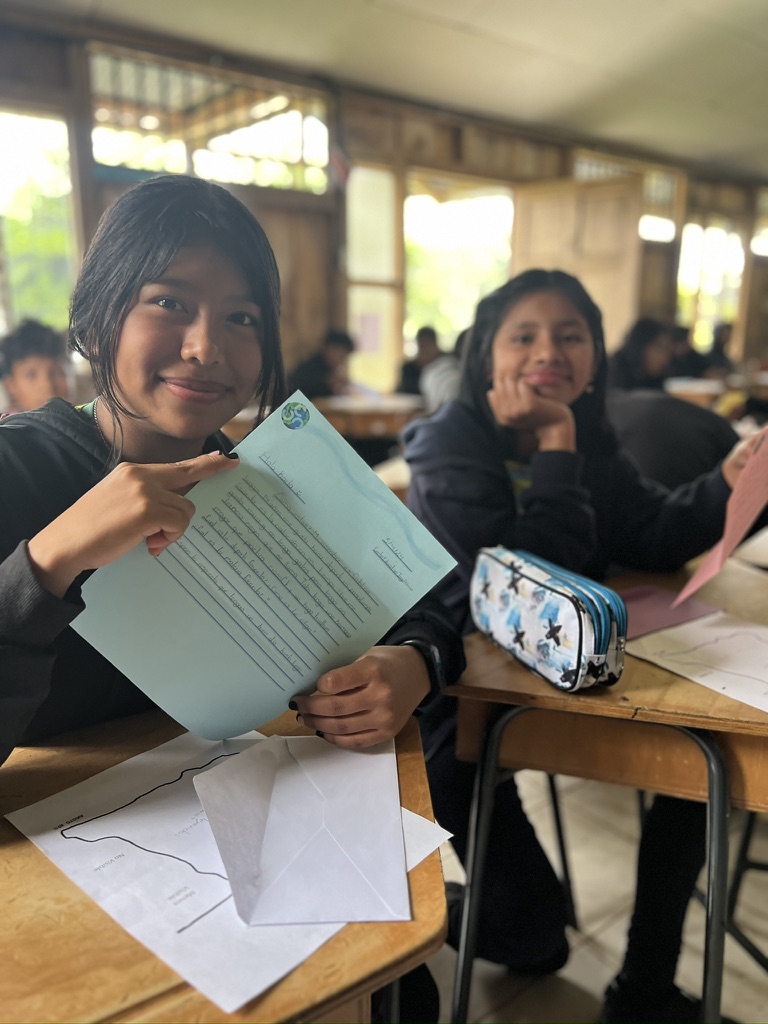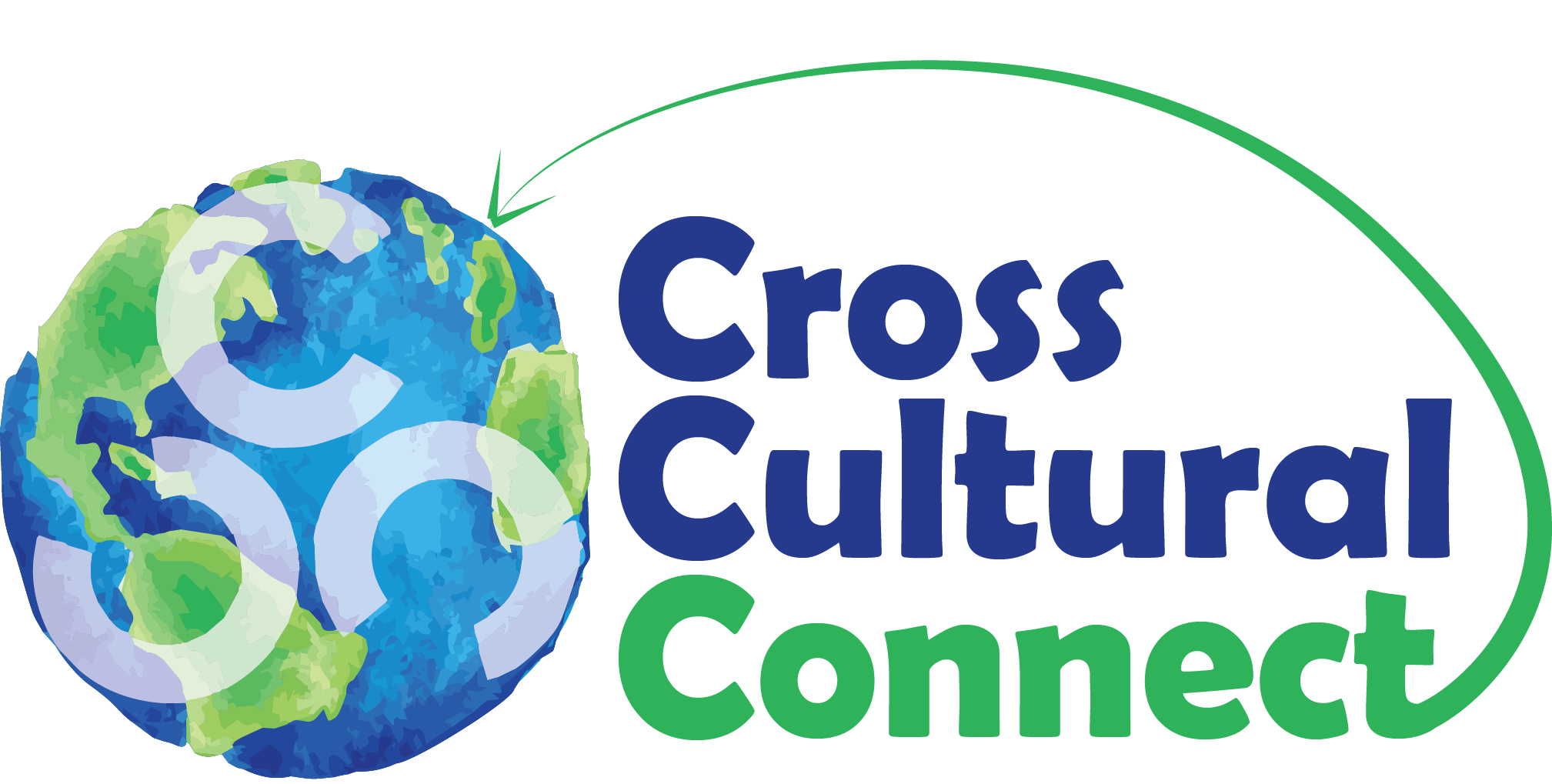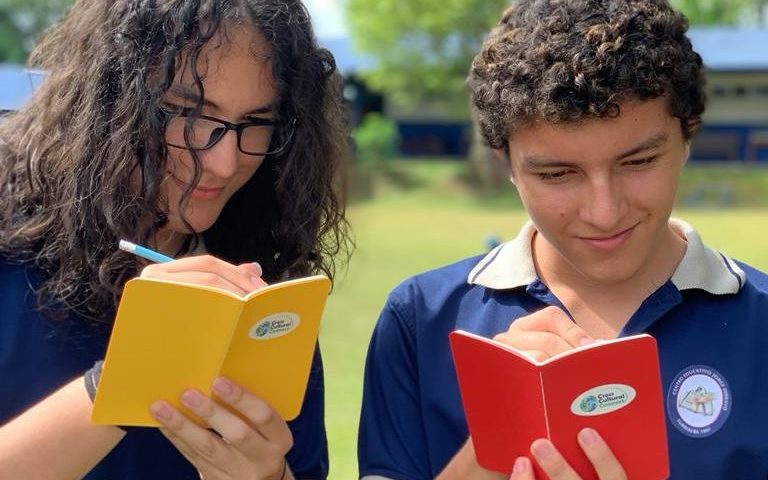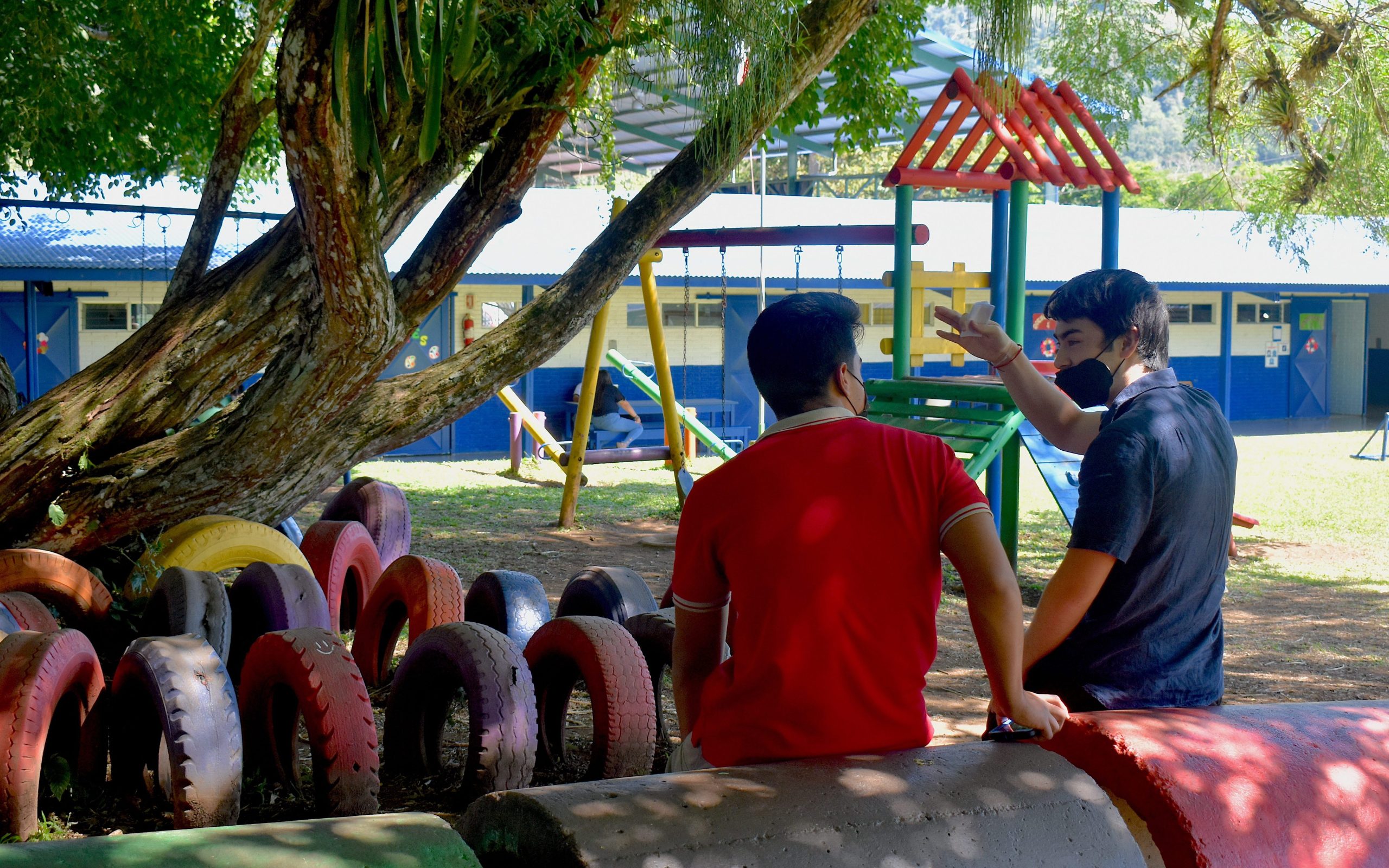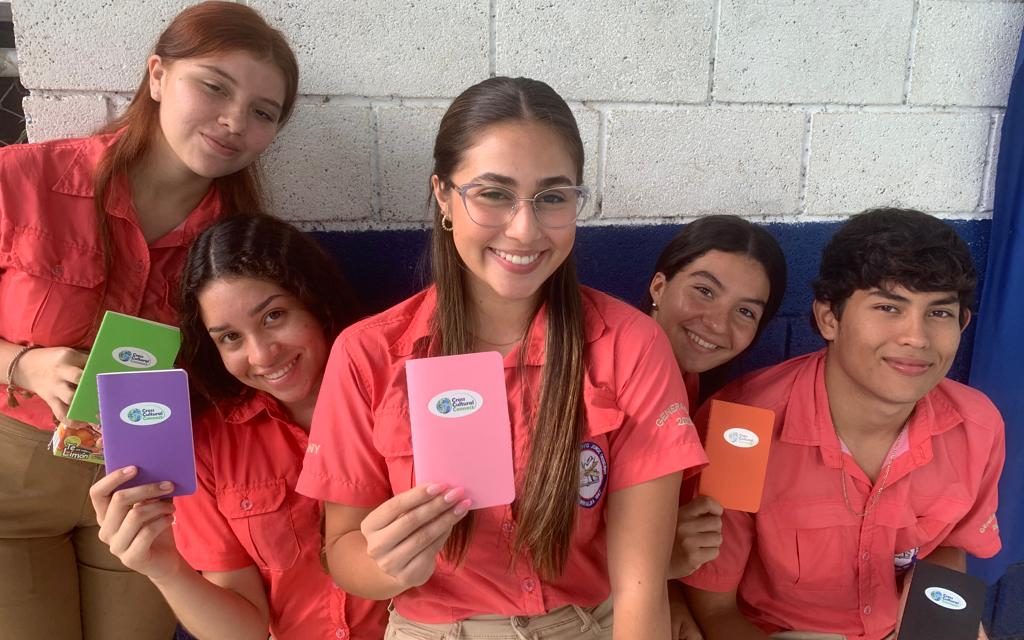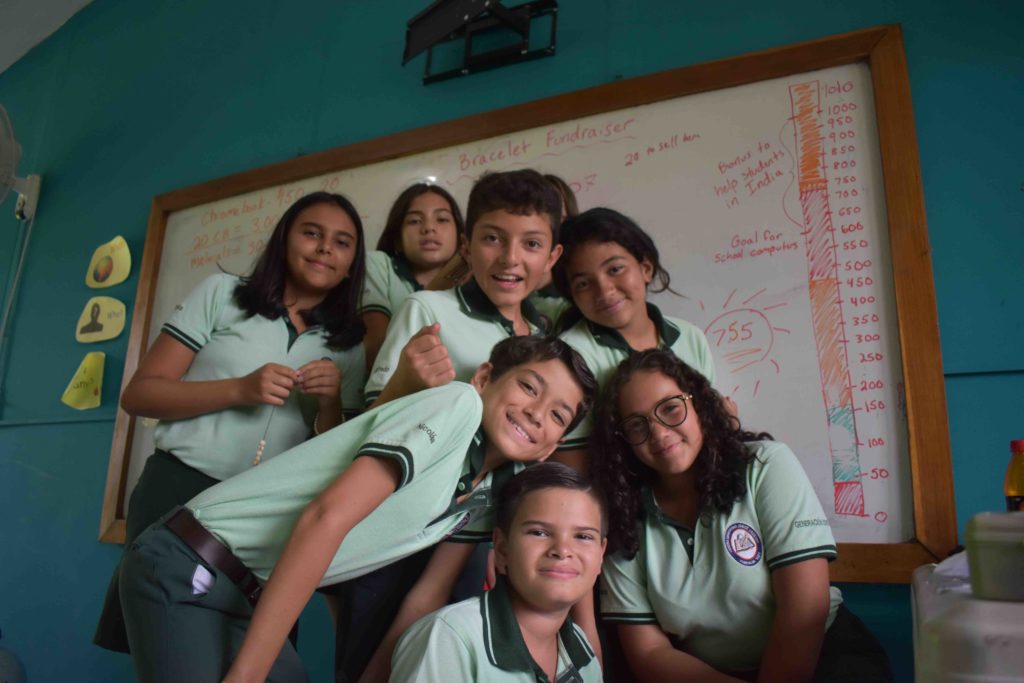Deep in the mountains, about two and a half hours from the city of Turrialba, lies the rural Indigenous community of Kabebata, home to the Cabécar people, one of Costa Rica’s oldest and most culturally rich communities.
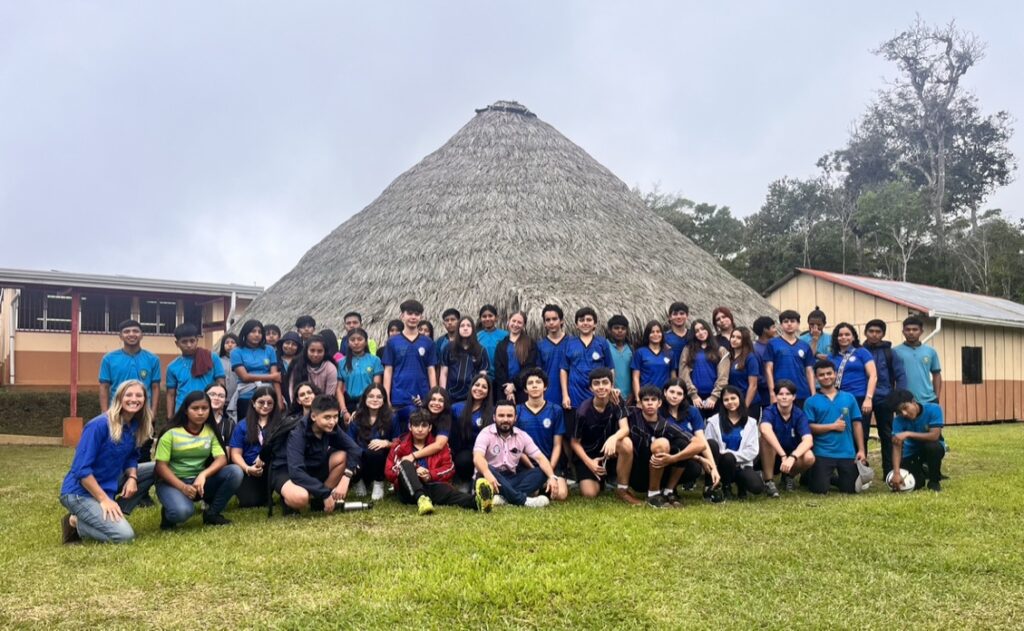
It’s not a small village. In fact, the high school serves about 125 students. But despite the number of students, opportunities to connect beyond their region have always been limited, not due to a lack of interest, but because of challenges like unreliable internet access, limited transportation, and scarce technological infrastructure.
That’s where Cross Cultural Connect (CCC) came in.
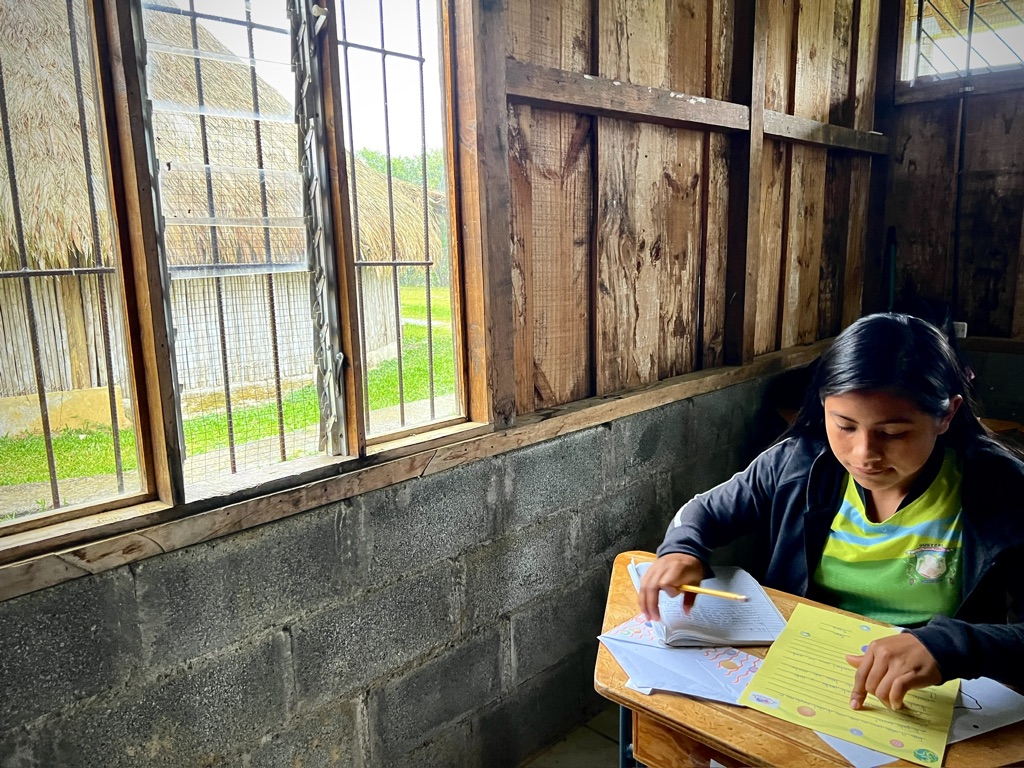
We started small: handwritten letters. Local students from Turrialba wrote to Kabebata students, introducing themselves, asking questions, and beginning what would become a powerful exchange of stories and perspectives. That simple act sparked something meaningful: curiosity, pride, and the realization that someone, somewhere, cared about their world. Thanks to previous funding, the Turrialba students were able to visit their Indigenous pen pals in person…a day none of them will soon forget.
Then came our first big step forward.
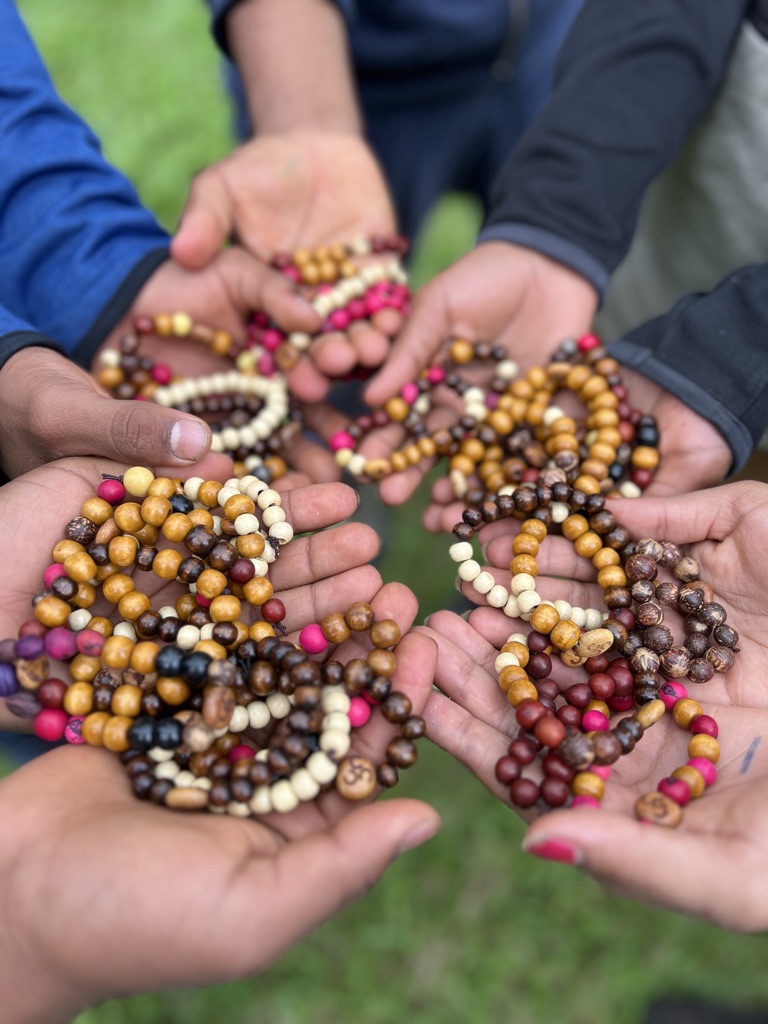
Through CCC’s Global Citizen Bracelet Program, we held a one-day workshop on social entrepreneurship co-led by CCC founder, Kayla Angstadt, and Victoria Miller, our intern from Drexel University. Students learned to make the bracelets, taking ownership of the mission to support equal access to education in their communities. Bracelets were sold by Costa Rican and U.S. schools, as well as small businesses, raising funds to support Kabebata’s educational goals, especially for students with dreams of continuing their studies in nearby towns.
With the donations, we were able to strengthen the school’s internet using a simple repeater, provide a donated tablet (generously gifted by Victoria), and install a television in the school library. This opened the door to something new: the students used Google Earth for the very first time.
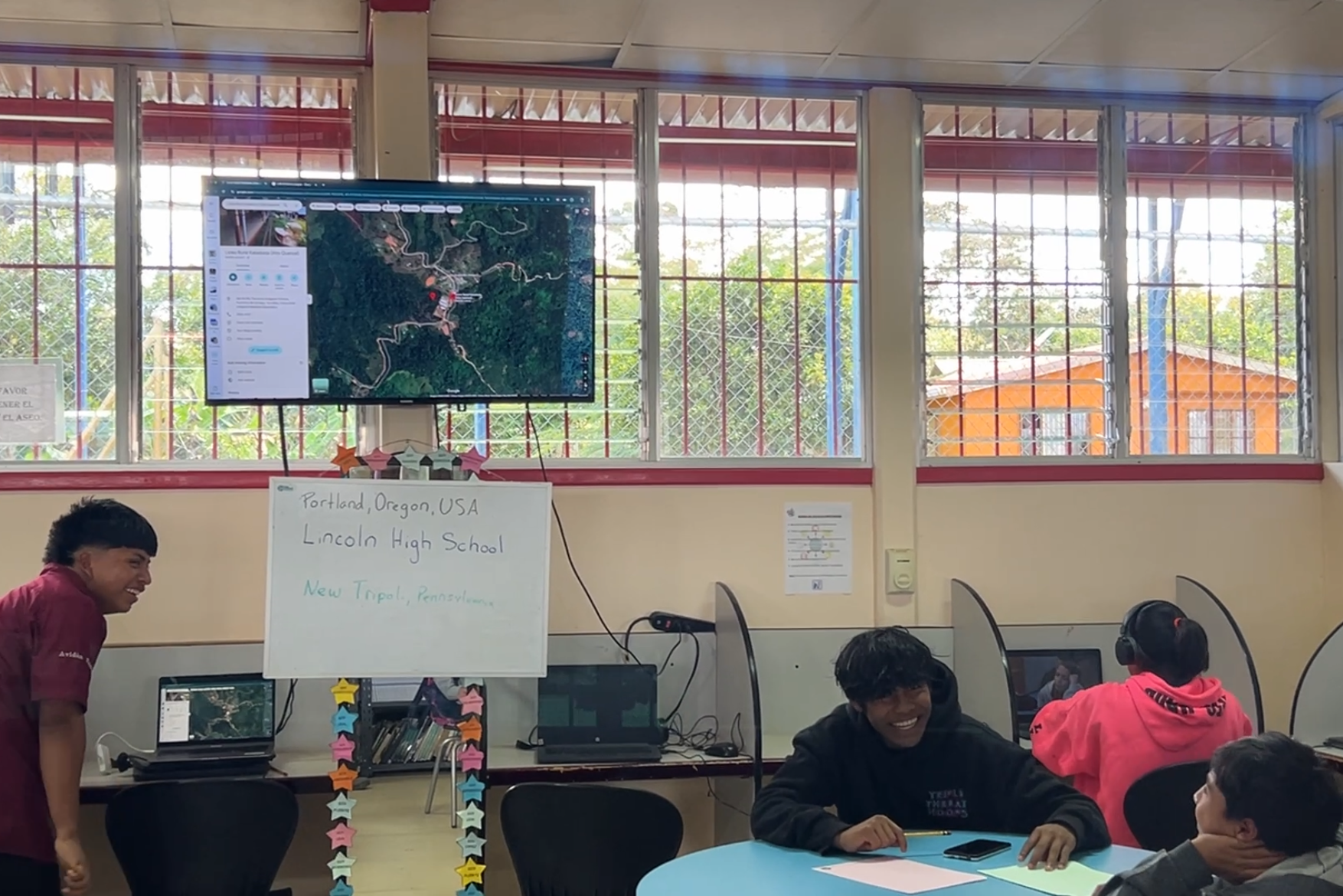
They explored other countries, schools, oceans, and cities—all from a classroom nestled in the mountains. For many, zooming out on the map wasn’t just about finding their town—it was about finding perspective. In that moment, the world became real, reachable, and full of possibility…and it put Liceo Rual Kabebata on the map. Literally.
A few weeks later, our Going Global student leaders from Turrialba also visited to support students in creating emails and learning how to use Google Docs and Drive: skills that will be essential as they pursue higher education and begin connecting with peers around the world through CCC’s future virtual programming.
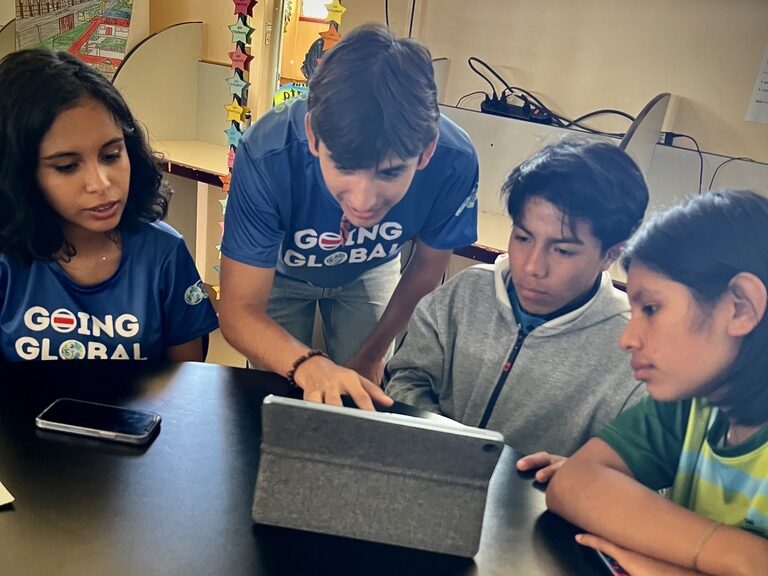
While the school’s computers are limited, often handed down from schools in San José to Cartago to Turrialba before finally reaching Kabebata – we’ve made the most of what’s available. We kept writing letters, this time with students from a high school club in New Tripoli, Pennsylvania, who were equally curious and inspired. That connection, too, began to grow.
And then, just last week, we reached another milestone: a stable Wi-Fi connection was installed.
But we didn’t stop there.
Our vision is to transform Kabebata’s school into a “Community Connection Hub”: a central space where students and families can do things they’ve never had easy access to before:
- Register for university courses
- Apply for scholarships and jobs
- Schedule hospital appointments
- Connect with mentors and teachers
This isn’t just about technology, it’s about building bridges, nurturing empathy, and empowering a generation of global citizens who are deeply rooted in where they come from, yet confident in engaging with the world.
In today’s digital age, we believe that students everywhere, whether in rural Indigenous communities or urban schools in the U.S., deserve access to a thoughtful balance between technology and nature. Each holds valuable lessons. And when used together, they allow students to think critically, communicate effectively, and explore with intention.
That balance is vital, not only for Indigenous communities adapting to a rapidly changing world, but for all of us seeking a deeper sense of meaning, sustainability, and understanding.
At CCC, we aim to inspire students in all countries to find harmony between innovation and tradition, recognizing that both sides hold the keys to a more connected, compassionate, and balanced world.
From handwritten letters to Wi-Fi-powered windows into the world, this is what happens when connection becomes action.
